By Shkëlqim Abazi
Part fifteen
Memorie.al / I were born on December 23, 1951, in the black month, of the time of mourning, under the blackest communist regime. On September 23, 1968, the sadistic chief investigator, Llambi Gegeni, the ignorant investigator Shyqyri Çoku, and the cruel prosecutor, Thoma Tutulani, massacred me at the Department of Internal Affairs in Shkodra, they split my head open, blinded one of my eyes, deafened one of my ears, after they broke several of my ribs, half of my molars, and the thumb of my left hand, and on October 23, 1968, they took me to court, where the unfortunate Faik Minarolli gave me a ten-year political prison sentence. After they cut my sentence in half, because I was still a minor, sixteen years old, on November 23, 1968, they took me to the political camp of Reps and from there, on September 23, 1970, to the Spaç camp, where on May 23, 1973, in the revolt of the political prisoners, four martyrs were sentenced to death and executed by firing squad; Pal Zefi, Skënder Daja, Hajri Pashaj and Dervish Bejko.
On June 23, 2013, the Democratic Party lost the elections, a perfectly normal process in the democracy we claim to have. But on October 23, 2013, the General Director of the “Rilindja” government sent Order No. 2203, dated 23.10.2013, for; The dismissal of a police employee. So Divine Providence was intertwined with the neo-communist “Rilindja” Providence and, precisely on the 23rd, they replaced me, no more and no less, with the former Security operative of the Burrel Prison. What could be more meaningful than that?! The former political prisoner is replaced by the former persecutor!
The Author
SHKËLQIM ABAZI
Continued from the previous issue
REPS
(Forced Labor Camp)
Memoirs
I’ll try to reproduce Ferit’s story, but without using his impoverished and especially shameful jargon, where for every ten words that came out of his mouth, five were synonyms that recalled female and male genitalia or similar.
“Listen to me now, my friends, while I tell you my story,” he began, head bowed. “In the village where I was born, we were known as one of the most respected families in the area—poor, yes, but respected. We were many children, and we barely managed to fill our bellies with bread. My father and older brothers toiled from morning until night, but the land only gave so much. So, from a young age, I saw that my life shouldn’t flow in the same stream as my parents’. I didn’t like working in agriculture or herding livestock on the mountain. I ditched school and eventually left the village when I was fourteen.
I found a job in the Alarup mine. There were others like me there. To be honest, the work was difficult there too—you’d go into the holes white and come out black. But there were also some who never came out alive, only as corpses that were sent home for burial. I made up my mind: I wouldn’t work in the gallery anymore. But on the other hand, I wanted to live. Willingly or unwillingly, I started the trade of a thief. At first with small things, like some bread from the mine’s bakery or other food from the food warehouses there. Oh, yeah, I even stole some clothes from clotheslines because I wanted to be dressed too.
I drew attention, as the village was small; everyone knew everyone else. They would catch me, beat me, keep me in the police station for a night, and after I promised I wouldn’t do it again, they’d send me back to work. I told you, work wasn’t for me! But I wanted to eat, man! Believe me, guys, I’ve never been truly full! Even when I had the chance to get my hands on a large sum of money, I couldn’t get enough. I don’t understand, but a kind of cave has been gouged out in my stomach—what am I saying, a gallery! Or, a dragon! And no matter how much I put in, it just gets bigger!
So, by growing up and getting torn up, I became a master of this trade. As soon as I turned sixteen, the prisons started: two months, then six months, then a year and more. Half my life was spent in prisons, in and out. Since I’ve been in and out so many times, I became a known figure in prisons, both to the police and to the ordinary prisoners. But I swear, I didn’t love communism, even though I wasn’t sentenced for political reasons. But even there, there were men, despite the fact that the majority were truly ordinary, in the broad sense of the word, because they were sentenced for trivial crimes like theft, pederasty, prostitution, illegal trade, rape, incest within the family, with mothers, sisters, sisters-in-law, daughters, and so on.
In short, I met good people, people in trouble, but the overwhelming majority was the scum I mentioned. They had a certain hatred for those who were sentenced as enemies because they saw themselves as an inseparable part of the Party’s loyalists, even though they were in prison. It was not the best, I learned that there were people who hated the Party of Labor not because it punished people for the crimes I mentioned above, but because it didn’t punish these crimes and even stimulated them in the high ranks of power.
Due to frequent movements from one camp to another, I happened to get to know some political prisoners in the Tirana prison. At that time, my convictions and hatred for the communists crystallized. I am grateful to those politicians for enlightening my mind. I started to reflect. From that day on, I made up my mind not to get involved in ordinary crimes anymore. “I’m in prison, I’m spending my life in prison,” I thought, “so it’s better to be here for political reasons, because I can also lend a hand against communism, which, to tell you the truth, I truly hate.”
This is my story and why I ended up here.
When we asked him why he hated the communist regime, he replied: “What’s not to hate about them, sir! Even those who work in the mine and in the agricultural cooperatives can’t secure a normal life, let alone me, who doesn’t like work at all! And then, just look around, if you find one decent woman! They’re all in patched denim pants and with a headscarf. Have you seen how they look? All the same, like the Chinese. Eh!… Oh, my mother!” he said, as if deep in thought. “The world lives, man, it lives! They eat and drink and have fun, you scoundrels! But we, we were enslaved only to work and actions! Did you get it now why I don’t like communism, me?”
When he finished his speech, he took a deep breath, as if he were at a doctor’s visit. When we asked him where he had seen how people lived abroad and if he had ever thought of escaping, he again rested his hand on his forehead, let out a long sigh, and replied:
“Hmm!… Brother, didn’t I tell you that every time I got out of prison, I stayed in Pogradec and Tirana in the winter, and in Durrës and Vlora in the summer, because I didn’t have a home, I lived with friends. Why, haven’t I seen foreigners?! Dressed and shod beautifully! Not to mention, those women on the beaches! You could drink them up! ” (He made a sucking gesture with three fingers of his hand). “So, I knew all these things, but as for escaping, honestly, the thought hadn’t crossed my mind. But, if I get out of here, I’ll look into that too! Did you get it now that I don’t like communists either?”
He didn’t give a concrete answer to the question of why he had been sentenced for political reasons. But this archetype connected everything to material aspects and especially to eating. To the question of why he stole, he replied according to his pragmatic philosophy: “No, father, I don’t steal, I take! Where I take from, there’s definitely something there! If there wasn’t, I wouldn’t have anywhere to take from! First of all, this; second: why, man, shouldn’t I eat? I also have a stomach that needs to be filled. No one from my family helps me, so I make do however I can. No, my dear, I have to take care of myself! This is what I do best, this is what I do!”
These were more or less the thoughts of this unbalanced being. His hatred for communism was totally contrary to the mentality of the overwhelming majority of political prisoners there. A few months later, in the revolt of May 21, 1973, Ferit was sentenced again. Now punished as an opponent of the regime, he said it out loud: “I am a politician!” He began to take on a serious appearance, became quieter; in other words, his instincts won out, in order to adapt to the people and the environment.
He even made up a pseudo-story for his first sentence, that he was supposedly put in prison for attempting to escape, and other fantastic events that only his mythomaniac mind could invent and that only he could believe. In fact, many years later, through my friends who were getting out of prison, I learned about a supposed love story of Ferit with a peasant woman from his village, with whom he supposedly wanted to escape from Saranda and that this was supposedly the reason for his first sentence!
He had fabricated these legends himself.
Over the years, he had heard hundreds of similar stories, and with the standard pieces cut from these tales, he had stitched together his own saga. For us who had known he when he was first brought to Spaç, these remained fantasies à la Ferit-the-cow, while those who came later might even believe them. In any case, Ferit remained Ferit; an individual with a name, but without a last name, a unique case in the history of political prisons.
However, from the long cohabitation with political prisoners, he also gained some human qualities, which he would manifest during the endless years of his exemplary sentence. Now that I am putting these memories on paper, I feel pain for what I mentioned, and since I want to remain faithful to the truth, I am forced to show these flaws. But I was forced to reflect. Based on the stories of my friends who continued to serve their sentences for years afterward, I learned new things.
One unprecedented human gesture by Ferit the Cow in the cells made a special impression on me. In a moment of extreme hunger (I want to emphasize that he was always hungry), after he had devoured all the chess pieces made of bread pulp that the isolated prisoners had illegally concocted to pass the time, he had singled out an officer. After the pressure from his cellmates, when they couldn’t find the bread pulp pieces, he had admitted that he had eaten them, under the impulse to quench his hunger.
When they found the remaining officer, hidden in a corner, and shook it in front of his eyes, he had replied: “I sheltered the thirty-one figures in my cave,” and he hit his stomach with his hand, “but I left this officer because he resembled Mark. Out of respect for all the good things he has done for us prisoners, I set him aside to save him from my gluttony!”
So, in the soul of this glutton, the feeling of respect and gratitude began to bud. Of course, what I recounted above belongs to the stage when Ferit the Cow had just started the second series of his sentences, the political one, which coincides with the reality of those years. Later, like an animal that becomes conditioned to its place, he also adapted to the circumstances. Maybe his behavior also changed, but this belongs to another period that has no connection with the time I am talking about.
The Infirmary
(Even in HELL, you see light!)
“Where am I? What are these white shadows swarming around me? I couldn’t perceive where I was; my reason had hit rock bottom.
Faintly, as if through fog, I could make out some human silhouettes, but I couldn’t distinguish any face. I heard murmurs, without making out what they were saying. Now and then, some invisible hands would turn me on my side, and a kind of wasp sting would tickle me, and I would immediately sink back into the ether. In front of me appeared flowering meadows and green gardens, with chirping birds and colorful butterflies, with animals frolicking and happy children running and playing after them.
A fairy-tale beauty, a true paradise! I believed I was living a brilliant reality within an incomprehensible unreality. I hoped to enjoy this unreality for as long as possible. If death had the colors of Eden, like the ones I was experiencing at that moment, I would cling to Cerberus without fear and would never let go! How beautiful and attractive those illusions were! I don’t know how long it lasted, but at some point, the visions were shattered; a furious gust of wind forcibly snatched them away, and they collapsed, like a tree twisted from its roots.
I felt someone calling my name. I recognized my father’s voice. Distracted as I was, I opened my eyes wide. I looked around for my loved one, but my eyes couldn’t find him anywhere. I reached out and reached out, still nothing. Unconsciously, I had half-risen. That vision of my dear father had brought me back to life a second time. I collapsed exhausted, back onto the bed. The effort had tired me but had saved my life. The worst was over; life had triumphed. The doctor and the nurse continued to inject me with serum; now I could feel the needles piercing my flesh. The sensation of pain pricked my heart, but I was powerless to command my limbs.
I opened my mouth to speak, but the voice got stuck somewhere at the back of my throat; my throat was completely dry and gave me the sensation of a burning sensation that went down deep into my stomach. “Quiet, don’t talk!” ordered the one who must have been the doctor. White shadows were gliding around the bed where I lay. Immediately, a familiar face bent over me. I couldn’t remember who he was, but I was able to distinguish the first features somewhere. But where? I wasn’t able to pinpoint it exactly. “What’s this mess, man? But, he was fine, mo!” I heard him say. When the speaker spoke, he would pace around the bed with the tempo of a dancer. It came back to me: Emini, the lame man from the clothing warehouse.
“Hmm, you were fine, man!” the lame man continued his monologue, tirelessly running from one side to the other. “Come on, man, don’t worry, you made it! I know well what kind of things these are; it’s happened to me twice, but both times, I drove it away! You’re young too, you’ll make it!” The good Emini spoke to him, and every word was accompanied by gestures of his hands and feet:
“Doctor Naim is our dearest; he’ll do everything, I know Doctor Naim well. Oh, yes, you also have Dilo as a half-patriot, who has a wife from Berat, man! He’ll find you some extra medicine!” “Leave him alone!” the doctor ordered, a man around forty, with a sympathetic face, or so it seemed to me, because he was taking care of my health. “He needs fluids, prepare some tea!” he said to the other one in a white shirt, who must have been his assistant.
A few moments later, the nurse put a straw-shaped tube in my mouth; the other end was submerged in an aluminum bowl. “Suck!” the doctor ordered. I sucked as much as I could. My mouth filled with a warm, sweet liquid, but my throat burned beyond measure. “Swallow now!” the doctor ordered again. I swallowed the first gulp with difficulty, the second and third a little more easily, until I finished it.
“Now, remember beautiful things!” and he walked away to the other bed. I continued to be neither awake nor asleep. At some point, I opened my eyelids a little, but my vision went dark; I saw shadows coming and going, staying a little over me, saying something in a muffled voice and walking away, then other shadows would replace them. Then I lost my senses, my eyes blurred. From what they told me later, they had put chlorpromazine in the tea I drank a little earlier. I can’t remember how long it lasted, but when I woke up, I felt better. Although my head was still heavy, I saw more clearly and heard more clearly.
I stretched my neck and counted the patients in the room. Besides me, there were four others: three elderly people and one young man who were bandaged almost all over his body. When the doctor saw that I moved, he approached me with a syringe. Without saying anything, he lifted my sleeve, tied a rubber band around the muscle, and plunged the needle into the swollen vein, untied the rubber band, and pushed the plunger. The medicine began its journey inside my veins. After removing the syringe, he turned to me: “You feel better, I believe! Tomorrow you’ll be as good as new!” he added with a smile. “In any case, I’ll be here; I’ll keep you under control.”
“Thank you!” I stammered weakly. He went to the table, wrote something in a register, and came back to me: “I don’t know who you are or where you’re from, but if you can, ask your family to bring you a course of vitamin B-12.” “I just arrived; I don’t have contact with my family yet.” “Ah-ah! Hmm!” he began to ask me questions: where I was from, why I was sentenced, etc. After waiting for the answers, he added:
“Listen, young man, since you’re young and haven’t established contact yet, I’ll lend you a course of multivitamins.” He paused for a few seconds. “But, on the condition that you return them to me when your relatives bring them, because they aren’t mine. I’ll have to beg them from others to give them to you.” I promised him I would return them as soon as possible. So, from that day on, I became Doctor Naim’s patient.
Naim Çitozi from Kruja was not exactly a doctor, because he had been arrested and sentenced before completing his full cycle of studies at the Faculty of Medicine. But with an extraordinary will and the desire to serve his fellow sufferers in need, he had become a doctor and more than a doctor. The experience he had gained in the lecture halls, plus the medical manuals he constantly read, had perfected his skills.
He put all his knowledge at the service of every sick person, without distinction. Everyone trusted his professional abilities, not only the prisoners who saw in him a humanist and tireless doctor, but also the specialists in the prison hospital in Tirana. Anyone who appeared before them with the doctor’s recommendation, no one would question the diagnosis he had determined.
Even though he did not have specialized equipment for examinations in the infirmary, thanks to the experience he had gained and his continuous studies, plus his special intellectual abilities, Naim did not make mistakes. Many prisoners and their families should be grateful to Doctor Çitozi, because thanks to the dedication and ability of this half-doctor, who, when he lacked medicine, cured the sick with his warm and convincing words, they managed to get out of that hell alive. I also owe a debt of gratitude to the doctor for the care and kindness with which he dedicated himself to me during those days and afterward, when they would punish me with sentences in the camp’s cells. I quickly became friends with Naim.
From an early age, I discerned the humanism that dominated his character; this quality made him special from all the other doctors I have known in the prison years and later. He sacrificed himself to the point of selflessness; he was resourceful and persistent in the service of life, so much so that he often put himself at risk. If today we, the survivors of the communist system, can boast of the great, rare, and unique work of Father Zef Pllumi, an undeniable merit, besides the Grace of God, goes to Doctor Çitozi, who with his spirit of sacrifice, experience, dedication, courage to oppose the ignorant leaders of the Reps camp command, and especially with the trust he had created for his abilities in determining infallible diagnoses, managed to save him from the sure claws of death in 1970.
Yes, Naim was a doctor in every sense of the word. He considered the triumph of life over death to be the primary duty of every doctor. He visited with the same dedication the prisoners, the police, and the residents of the area. Of course, I am talking about the families and relatives of the camp police, who could enter there and whom he visited without distinction. Distinguished for his erudition and anti-communism, he enjoyed everyone’s trust. One day I joked:
“Doctor, what if it happened that they asked you to visit the great leader or the investigator, the prosecutor, the head of the court, etc., who made your indictment, etc., how would you act?” I expected him to tell me that he would give them a wrong diagnosis and recommend the wrong medicines or at least refuse to touch them. But his answer stunned me:
“Listen, young man! I don’t believe there is anyone who knows me, who would question my anti-communism, but I am a doctor, and the doctor is seen as an apostle by the patient. Normally, every doctor has taken the Hippocratic Oath. Well, everyone who has prayed to that saint would want to apply this oath as best they can in practice. So, it remains that a doctor who chooses politics over the patient can no longer be a doctor, not even me. As a doctor, I would heal them first, and then, if asked, I would give them the maximum legal punishment for the crimes they have committed.”
This was Çitozi the doctor, while the anti-communist Naim remained so for as long as I knew him. I spent another day in the camp infirmary. During those three days, I had passed through the eye of a needle; I had been saved from the clutches of death./Memorie.al




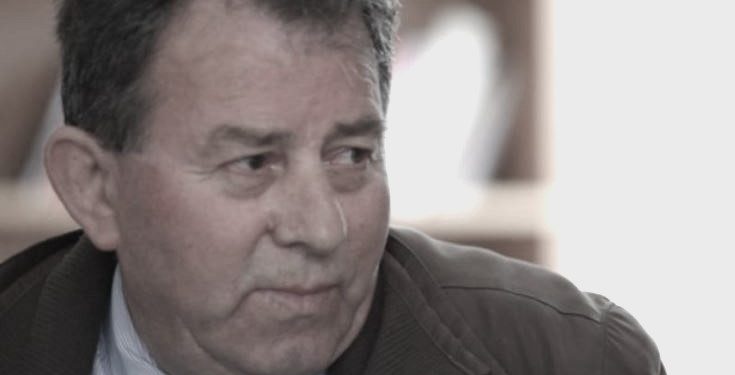
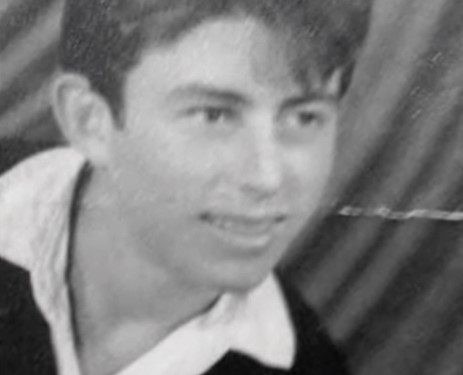
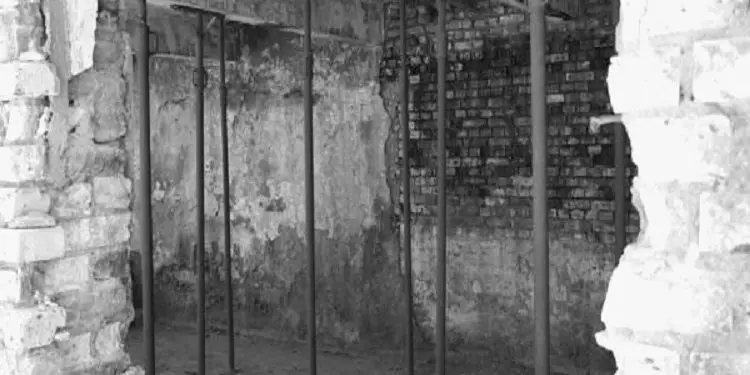
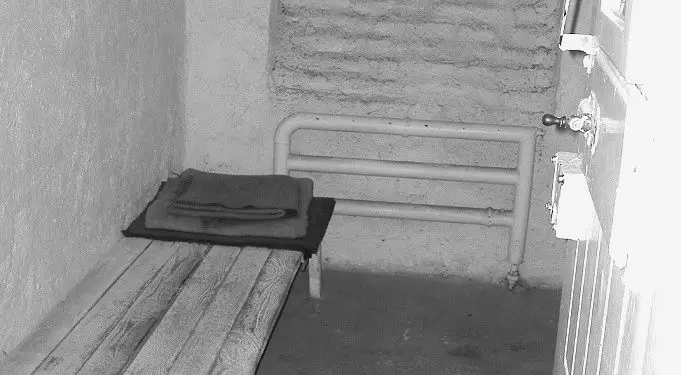
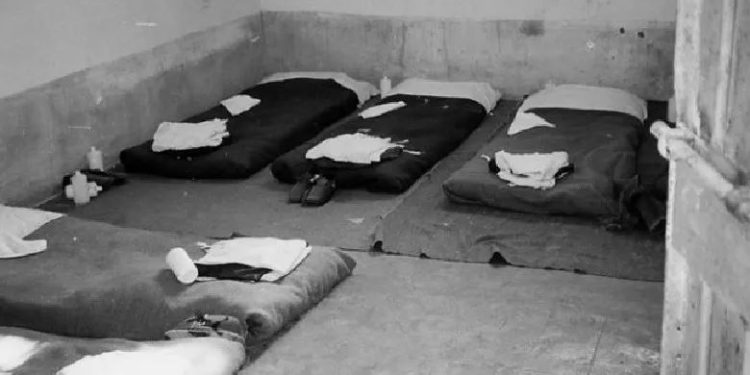
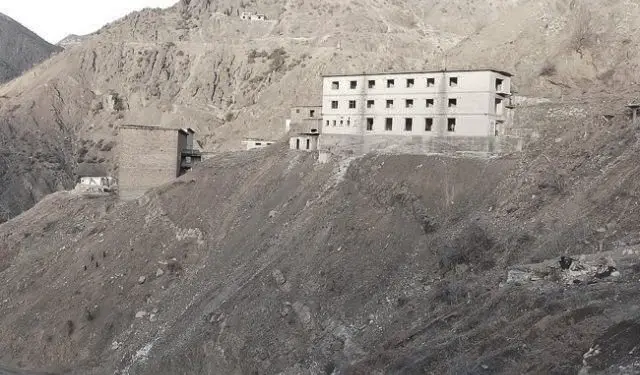



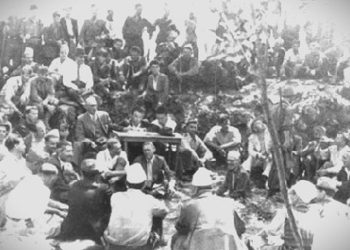
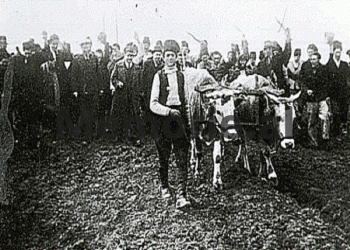
![“They have given her [the permission], but if possible, they should revoke it, as I believe it shouldn’t have been granted. I don’t know what she’s up to now…” / Enver Hoxha’s letter uncovered regarding a martyr’s mother seeking to visit Turkey.](https://memorie.al/wp-content/uploads/2026/01/Dok-1-350x250.jpg)
